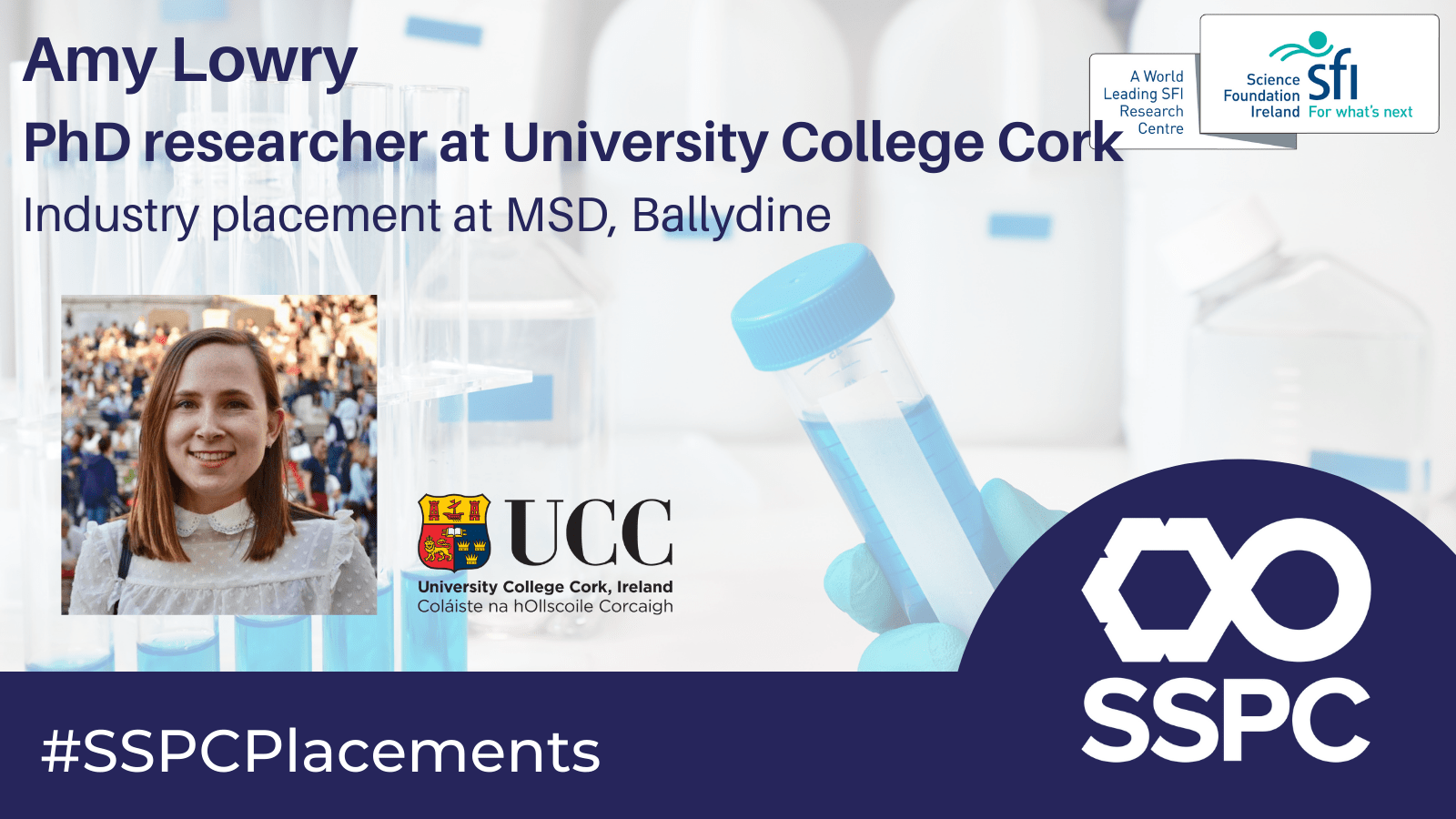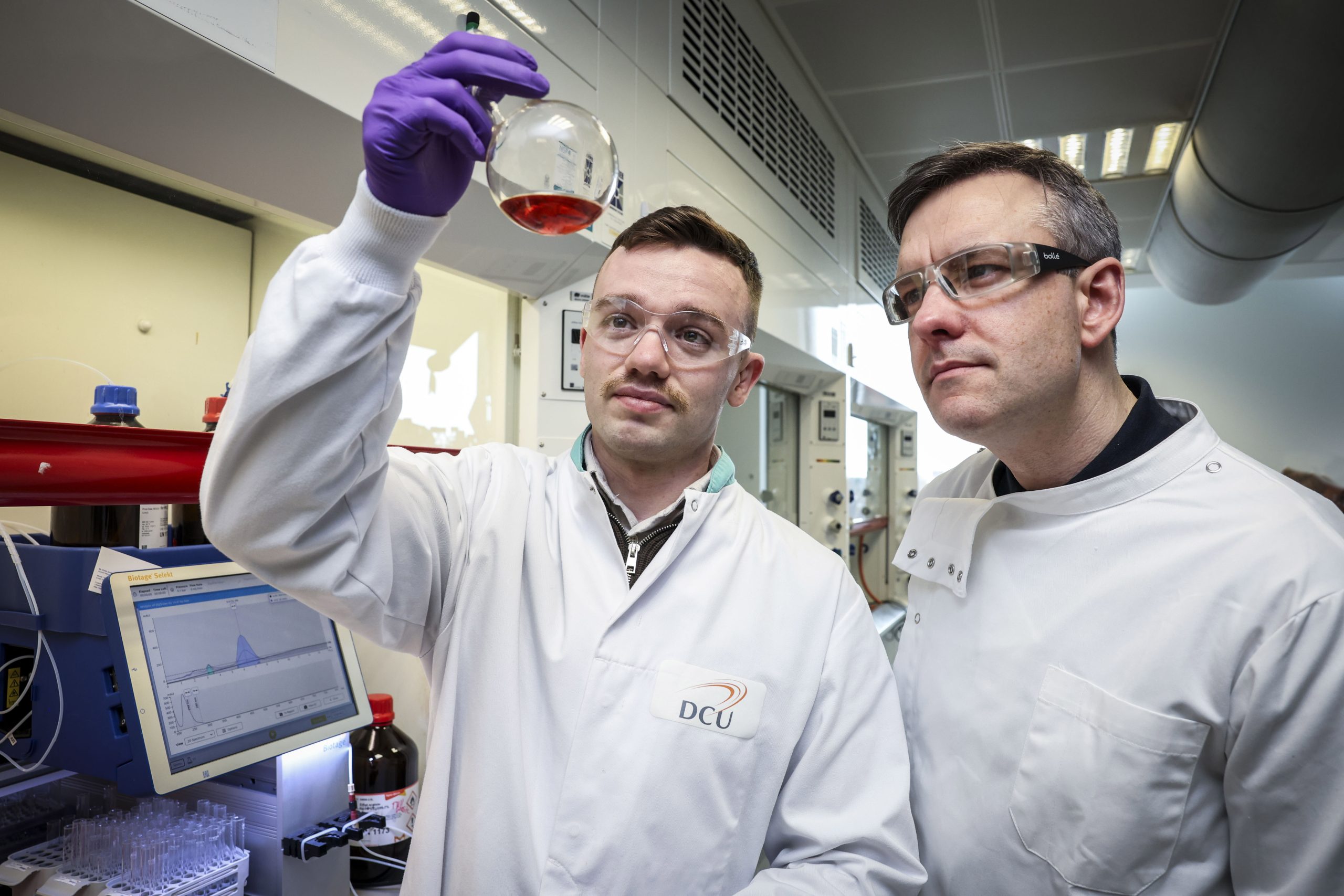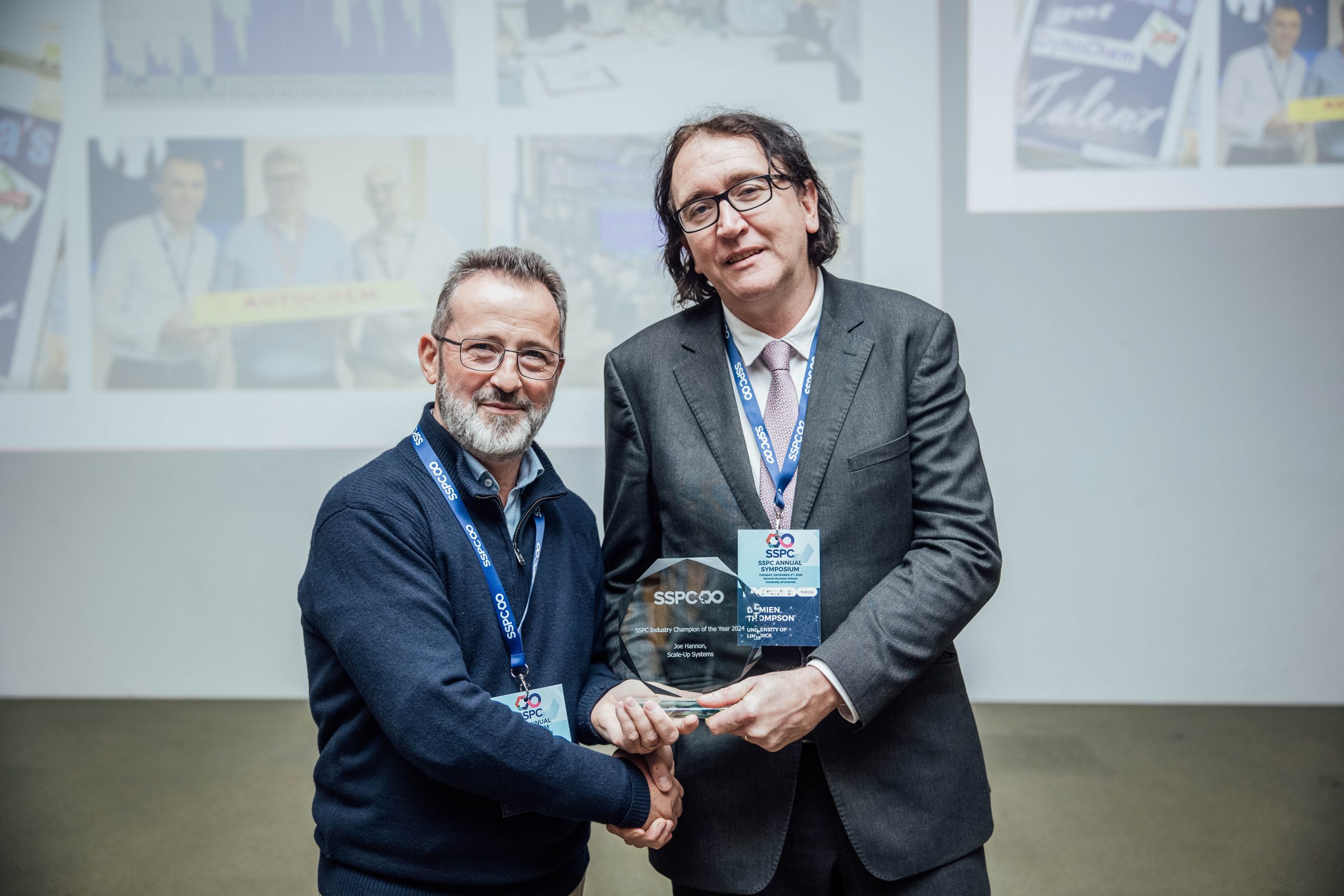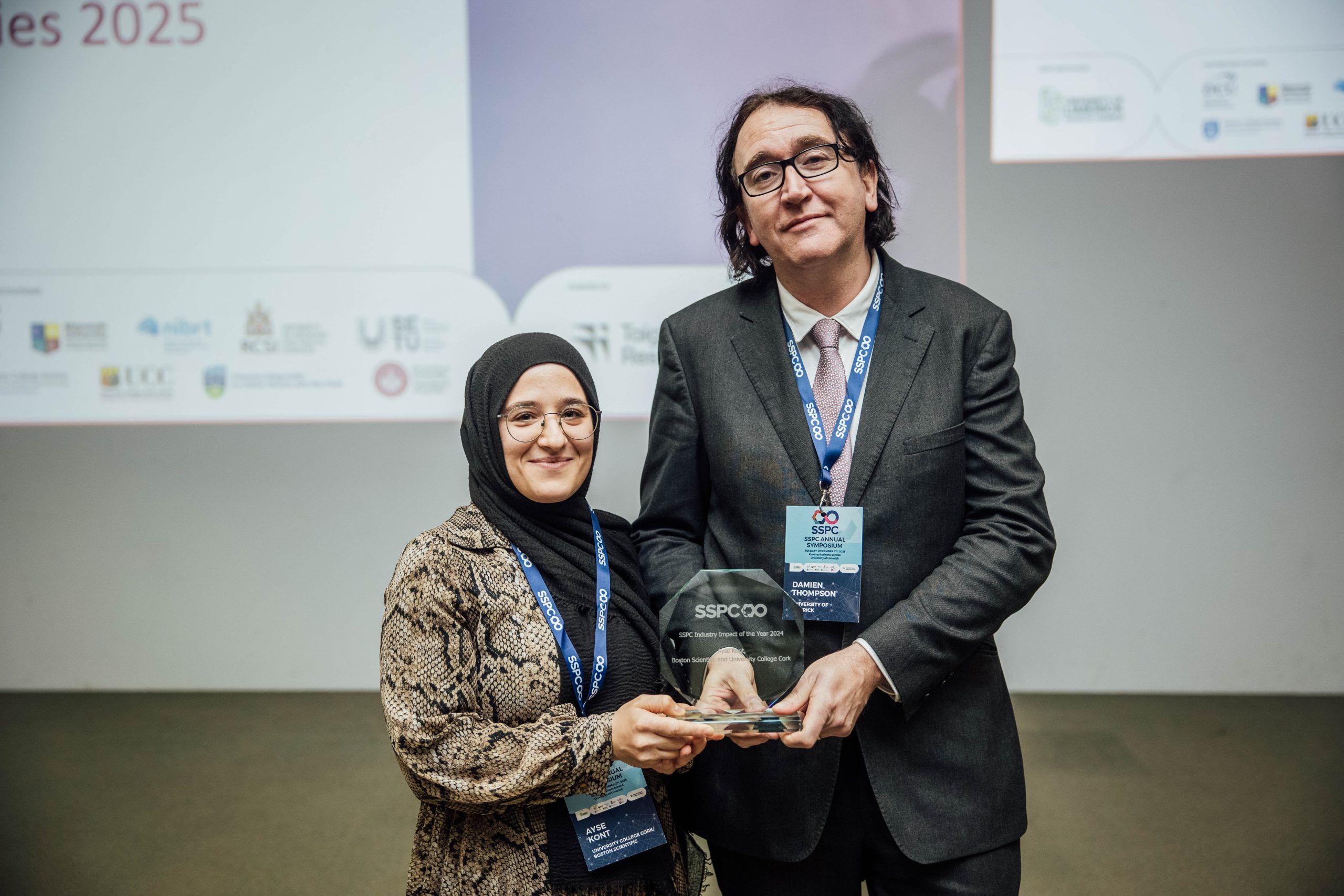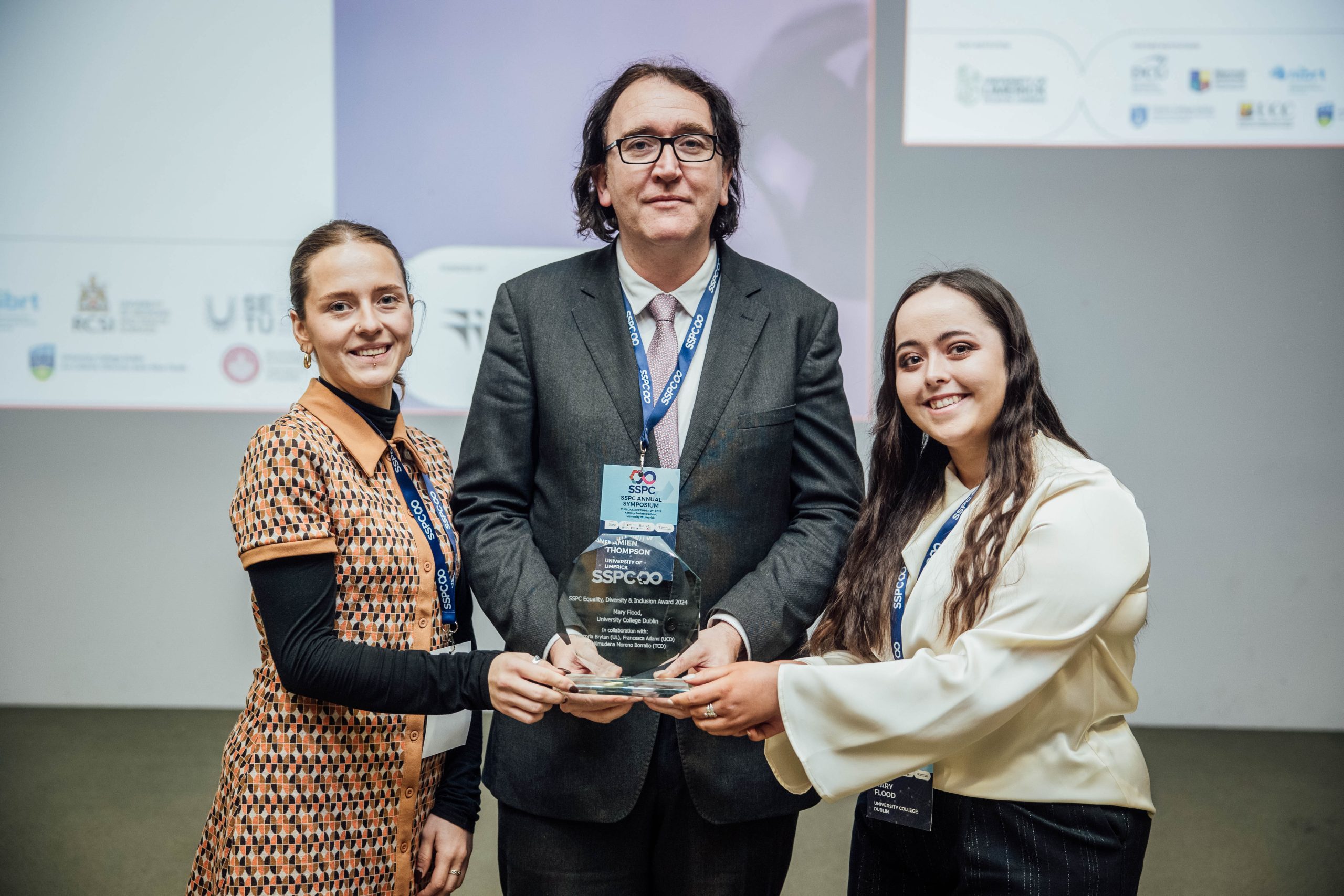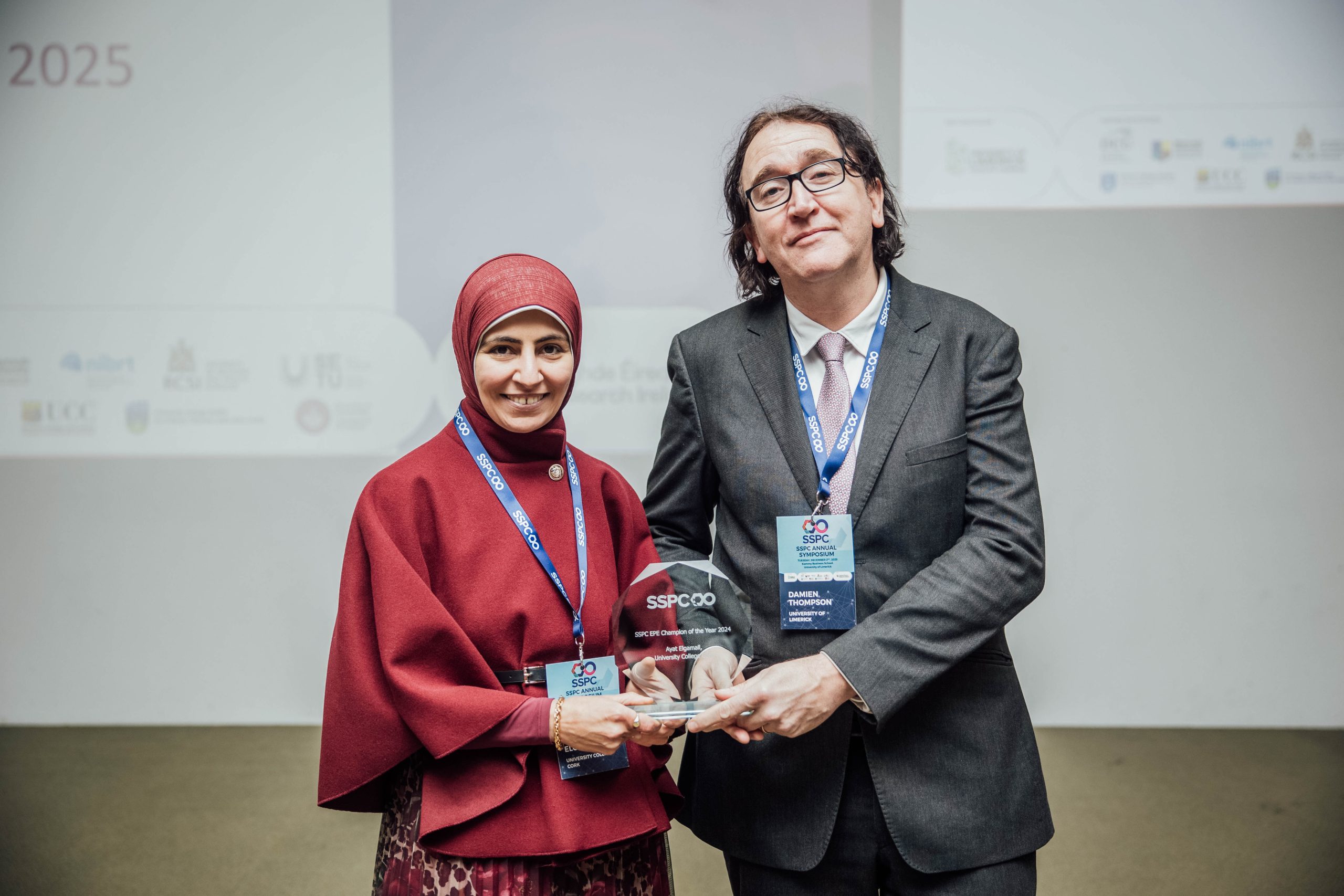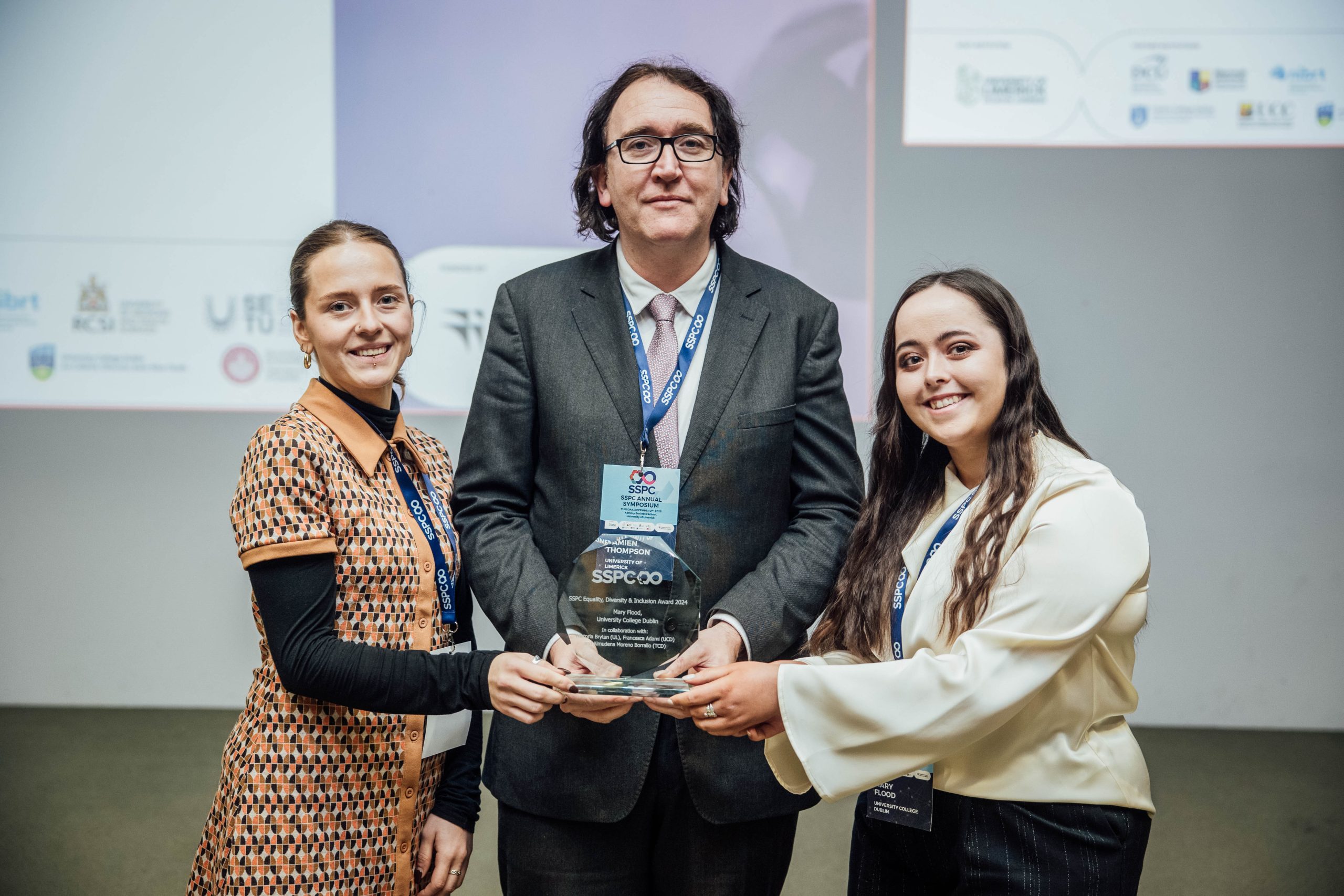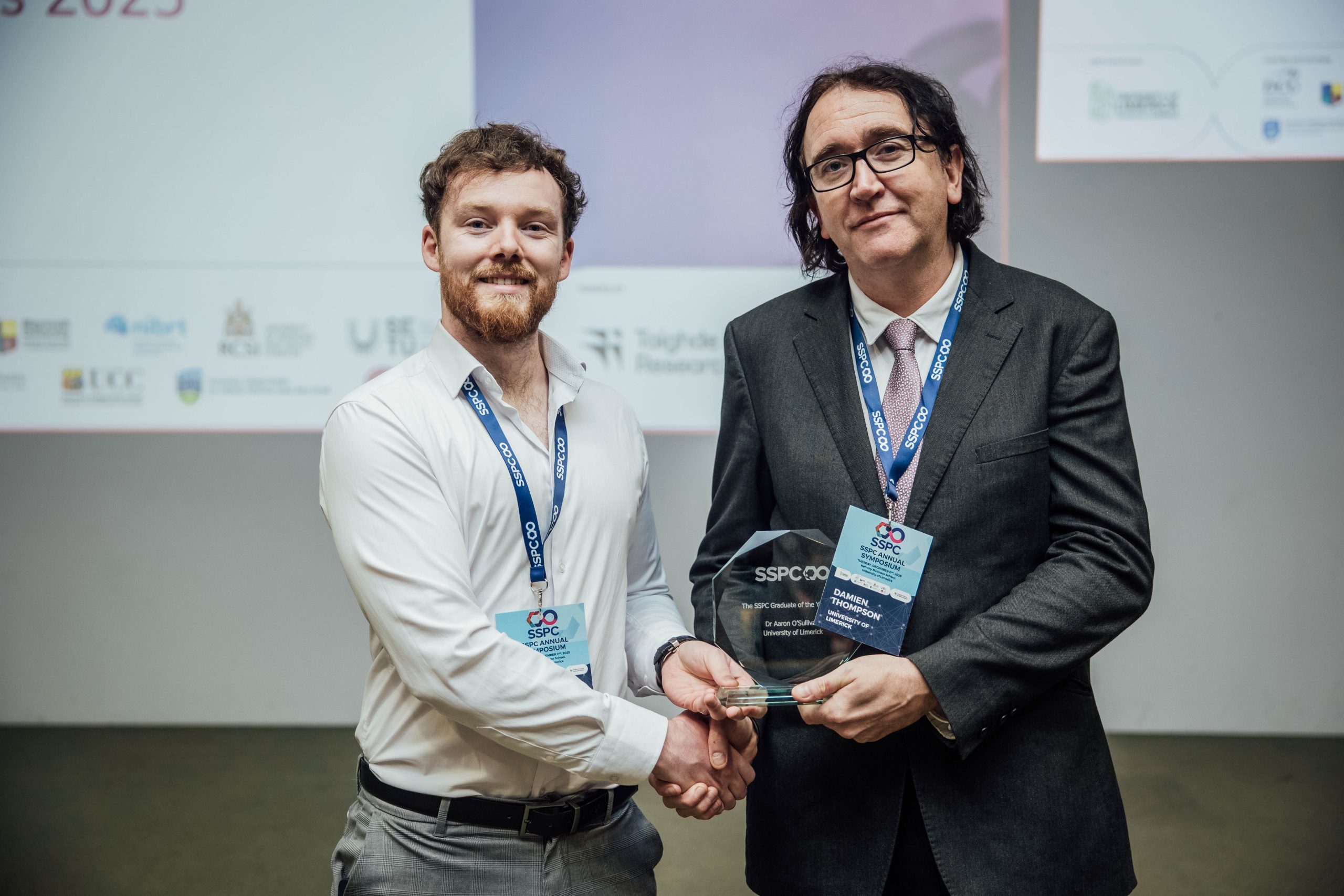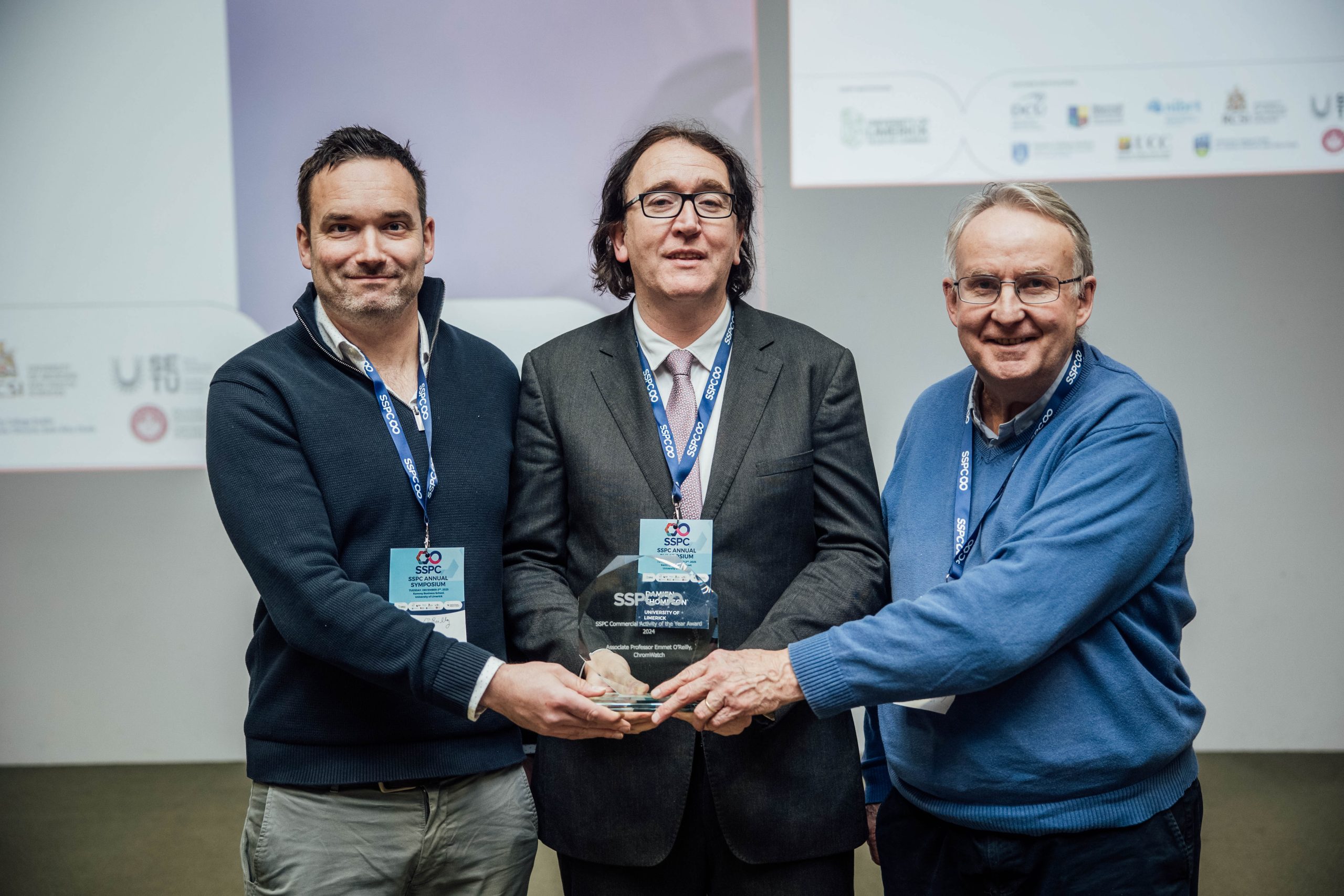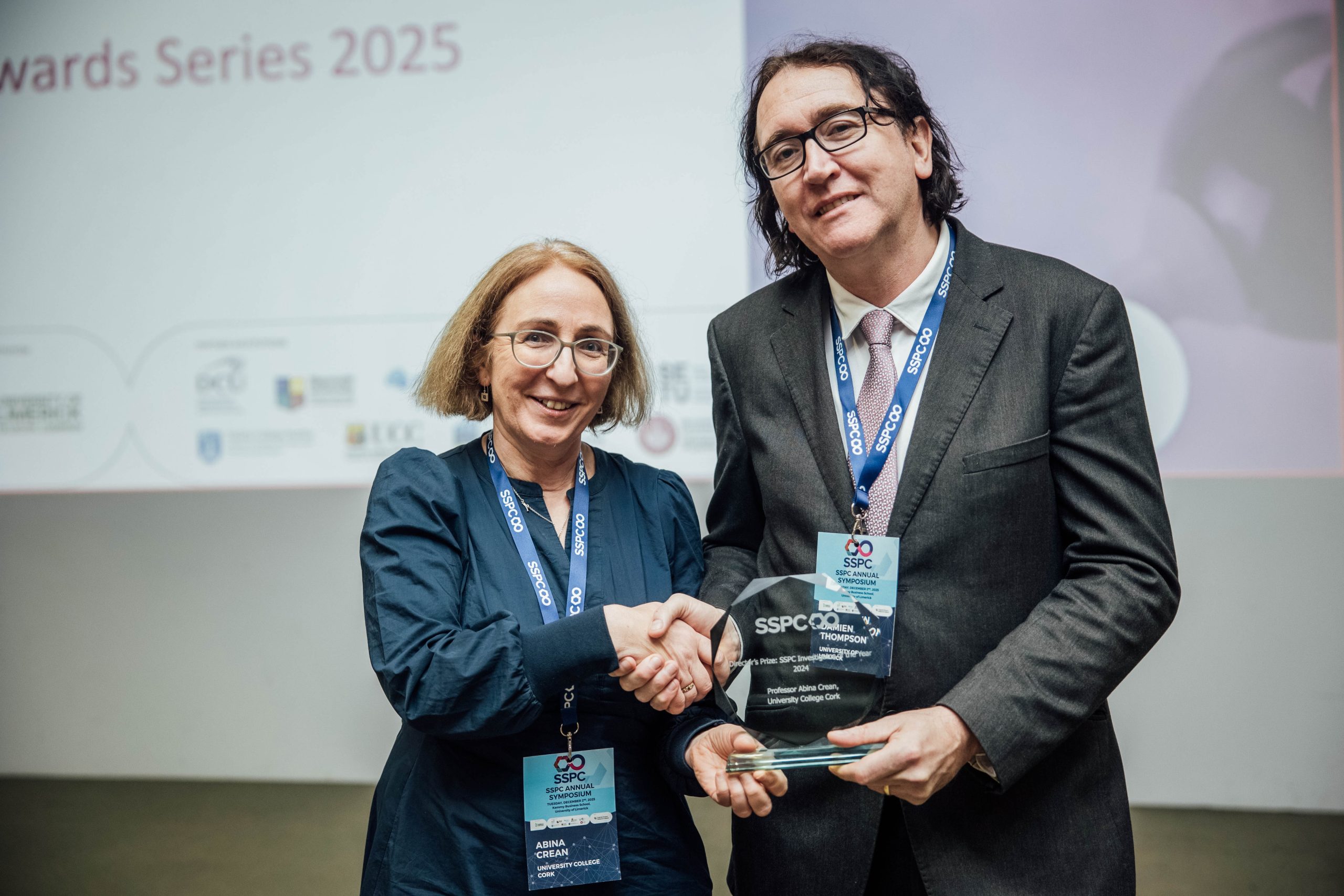“For other PhD students, I think an industrial placement would be a very useful experience. If looking to work in industry in the future, it’s helpful to gain experience in a relevant technical role. This will help with your CV and interviews but also to gain insight into jobs, which you may not know about, and to find out what is right for you. It is also very helpful for making connections in industry, which can become an advantage for you when it comes to searching for a job. It’s also nice to get a break from your research for a few months and refresh your mind by exposing yourself to new things.”
My name is Amy and I’m from Tipperary. I graduated from University College Cork (UCC) with a BSc in Chemistry of Pharmaceutical Compounds in 2018 and began my PhD in UCC under the supervision of Dr Peter Byrne and Dr Ger McGlacken. My research focuses on the development of new synthetic methodologies in organic synthesis, in particular synthesising α,β-unsaturated carboxylic acids using carbon dioxide activation. This methodology provides a new way of accessing these types of compounds, also with the benefit of using carbon dioxide as a reagent. This is an important area of research due to increasing interest in green chemistry principles and increasing CO2 levels causing global warming.
I took up an SSPC PhD industry placement in MSD Ballydine in September 2021 in the Process Development and Commercialisation (PDC) department, reporting to Tom O’Ceallaigh. MSD Ballydine manufactures and supplies APIs and final products for a range of medicines and develops pipeline products for launch and supply. Process development and commercialisation (PDC) consists of chemists and engineers, who provide technical support to both existing processes and development of new processes in Ballydine. During my placement I worked on a number of different projects.
The main project I focussed on was supporting the synthesis of a diastereomer impurity for an MSD product. Together with my co-workers, I successfully synthesised the required amount of the impurity reference standard required and analysed the purity profile of the material. This involved taking a precursor material through a number of reaction steps and carrying out purification and analysis of the HPLC profile of each intermediate in the synthesis of the reference impurity material. Other projects I carried out included supporting a rework and reprocess of material from a batch of product which contained some out of specification impurities, as well as the synthesis of a second reference impurity standard for another MSD product, as well as organising the shipment of this material to another MSD site in the US.
I attended online weekly meetings with the chemists of the PDC group and monthly department meetings with the people in PDC, as well as 1:1 meetings every week with my manager to discuss work completed and plans for the next week.
I also got to go on tours of two of the factories on site, which was a great experience for me to see how the chemistry carried out in the lab translates to large-scale manufacturing. To see the scale of the reactors used for the production of APIs was very eye-opening and gave me a good insight into the work carried out by the engineers and chemists on the site.
I carried out lots of training before beginning work in the lab – including training on good documentation, data integrity, PPE, lab housekeeping and lab safety. During my time there I learned a lot from working with other chemists and was helped by my mentor and manager during daily/ weekly discussions. This was very different to my PhD work, which would involve reactions taking place on mg or g scale, whereas in the lab in MSD, I was carrying out reactions of 10 g – 40 g scale and in the factories, production was on kg scale. Some of the equipment I used in the lab was different from what I would normally use in my PhD. From using small reaction flasks in oil baths in my PhD to using large jacketed vessels with overhead agitators and heating/cooling units in the MSD labs. This was a great learning experience for me and have taken some new skills and new understanding away from my time in MSD which I can apply to my PhD work and my future career. The work I carried out on placement was also quite different from my PhD work in that most work is carried out amongst a group of people working together on a project, which is different from working solely on a project in my PhD work, aided by my supervisors.
My PhD work has equipped me with the skills in organic chemistry I need for working in the pharmaceutical industry, but this experience allowed me to learn a lot about large scale synthesis, which is hugely valuable if looking to pursue a role in the pharmaceutical industry in the future. Overall, I learned about the framework of a large pharmaceutical manufacturing plant, and how all departments are involved in the big picture of medicine supply and development. I enhanced my documentation skills and heightened my awareness of safety practices, as well as the technical skills I learned in the lab. Overall, it helped me to see things differently and learn a lot outside of what I had known from my research.
This placement experience has reinforced in my mind that I want to pursue a career in the pharmaceutical industry. I found the role of a PDC chemist to be very enjoyable and relevant to my experience as a PhD student in organic chemistry, and I would be delighted to pursue a career in a similar role in the future.

